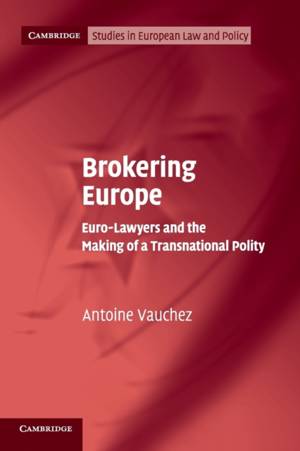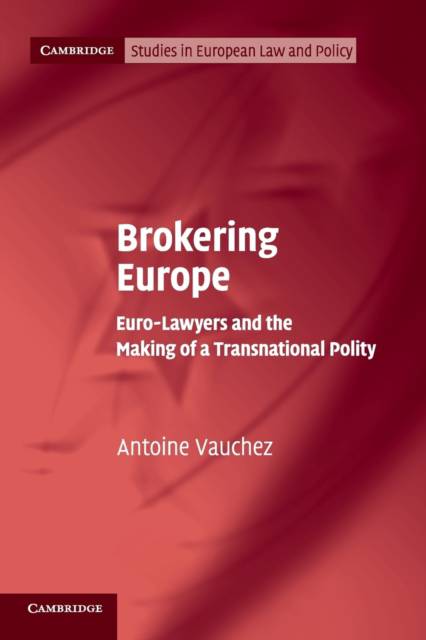
- Afhalen na 1 uur in een winkel met voorraad
- Gratis thuislevering in België vanaf € 30
- Ruim aanbod met 7 miljoen producten
- Afhalen na 1 uur in een winkel met voorraad
- Gratis thuislevering in België vanaf € 30
- Ruim aanbod met 7 miljoen producten
Zoeken
€ 60,95
+ 121 punten
Uitvoering
Omschrijving
Since the 1960s, the nature and the future of the European Union have been defined in legal terms. Yet, we are still in need of an explanation as to how this entanglement between law and EU polity-building emerged and how it was maintained over time. While most of the literature offers a disembodied account of European legal integration, Brokering Europe reveals the multifaceted roles Euro-lawyers have played in EU polity, notably beyond the litigation arena. In particular, the book points at select transnational groups of multipositioned legal entrepreneurs which have been in a situation to elevate the role of law in all sorts of EU venues. In doing so, it draws from a new set of intellectual resources (field theory) and empirical strategies only very recently mobilized for the study of the EU. Grounded on an extensive historical investigation, Brokering Europe provides a revised narrative of the 'constitutionalization of Europe'.
Specificaties
Betrokkenen
- Auteur(s):
- Uitgeverij:
Inhoud
- Aantal bladzijden:
- 276
- Taal:
- Engels
- Reeks:
Eigenschappen
- Productcode (EAN):
- 9781108735247
- Verschijningsdatum:
- 20/12/2018
- Uitvoering:
- Paperback
- Formaat:
- Trade paperback (VS)
- Afmetingen:
- 152 mm x 229 mm
- Gewicht:
- 376 g

Alleen bij Standaard Boekhandel
+ 121 punten op je klantenkaart van Standaard Boekhandel
Beoordelingen
We publiceren alleen reviews die voldoen aan de voorwaarden voor reviews. Bekijk onze voorwaarden voor reviews.











